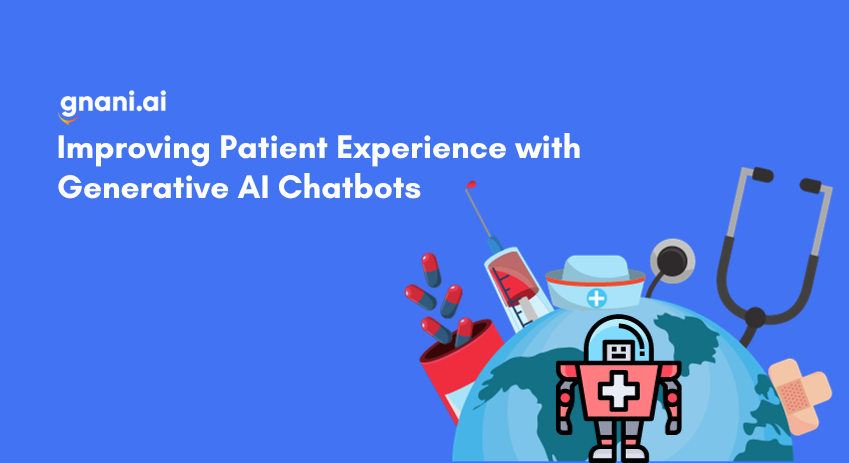Patient experience is at the forefront of healthcare delivery, and in the digital age, innovative solutions are emerging to enhance it further. Generative AI chatbots have emerged as powerful tools in improving patient experiences across various healthcare settings. This blog explores how these AI-driven chatbots are revolutionizing healthcare by providing personalized, round-the-clock support to patients.
Understanding Generative AI Chatbots
Generative AI chatbots are advanced virtual assistants programmed to generate human-like text responses. Unlike rule-based chatbots, which rely on pre-defined rules, generative chatbots use machine learning algorithms to understand and respond to natural language. They analyze the context of a conversation and generate relevant and coherent responses.
Benefits of Generative AI Chatbots
- Enhancing Patient Engagement
One of the key advantages of generative AI chatbots is their ability to engage patients effectively. They can answer queries, provide information, and even offer emotional support. This constant interaction keeps patients informed and reassured throughout their healthcare journey.
- Reducing Wait Times
In a busy healthcare facility, long wait times can be frustrating. AI chatbots can assist in triage, helping patients with non-urgent concerns while prioritizing critical cases. This reduces the burden on staff and ensures that patients receive timely attention.
- 24/7 Availability
Generative AI chatbots are available round the clock, eliminating the constraints of human work shifts. Patients can seek information or assistance at any time, enhancing convenience and accessibility.
- Customizing the Chatbot Experience
Personalization is key to improving patient experience. Generative AI chatbots can remember previous interactions, making conversations feel more human and building a sense of continuity in care.
- Improving Healthcare Accessibility
a. Assisting patients in remote areas
In rural or remote areas where healthcare resources are scarce, AI chatbots can bridge the gap. Patients can consult with these chatbots for preliminary assessments and guidance before seeking in-person care.
b. Language and accessibility barriers
Generative AI chatbots can communicate in multiple languages and accommodate patients with disabilities, ensuring that healthcare is accessible to a diverse range of individuals.
Conclusion
Generative AI chatbots have the potential to transform the patient experience in healthcare. They enhance engagement, reduce wait times, and offer 24/7 support. While challenges exist, continuous improvement and ethical considerations can pave the way for a future where AI chatbots play a central role in delivering quality healthcare.
Click here to check out Gnani.ai’s generative AI-powered tech for healthcare.


